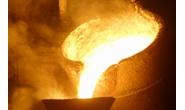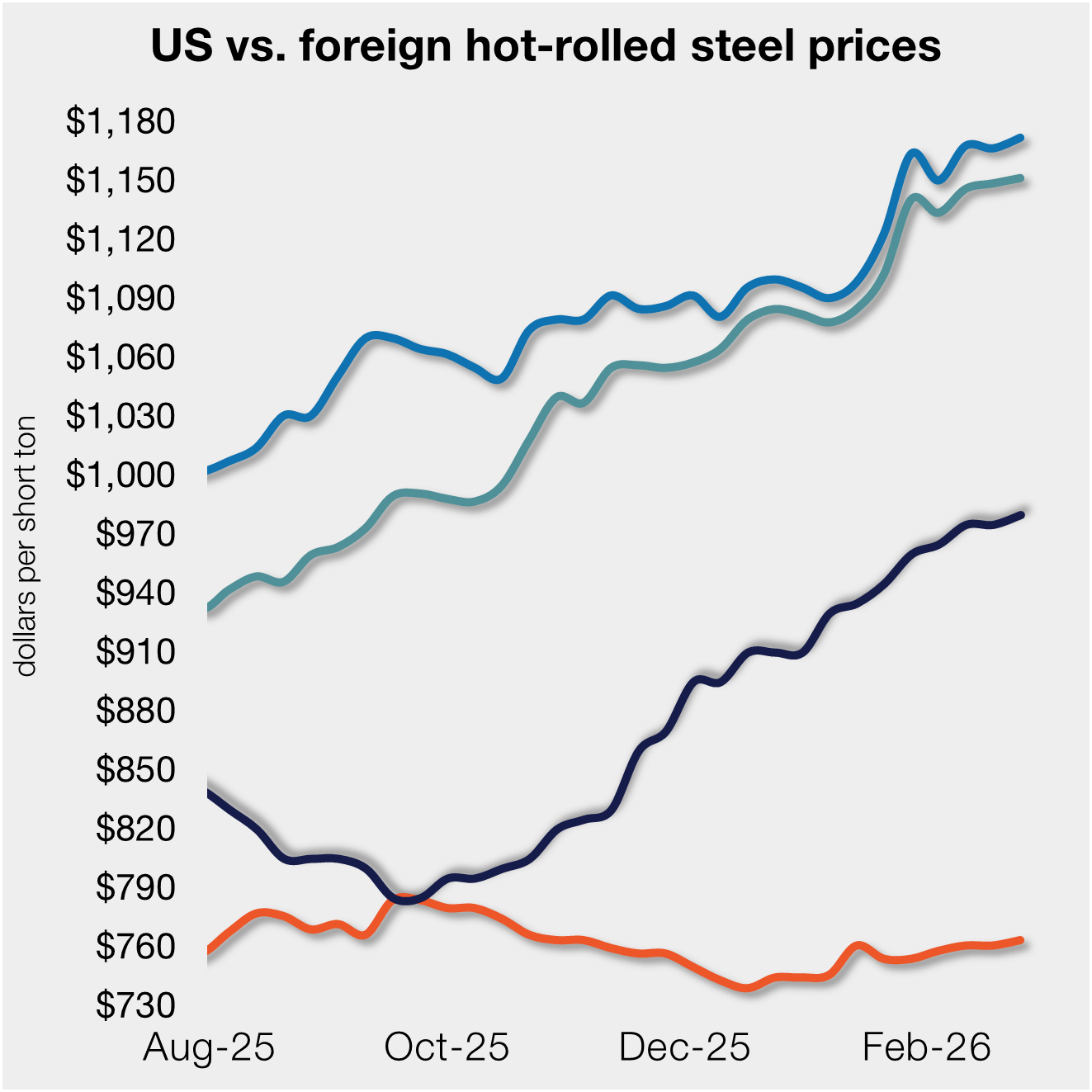Prices

October 29, 2013
AISI Estimated Raw Steel Production & Capacity Utilization Rates
Written by Brett Linton
For the week ending October 26, 2013, the American Iron & Steel Institute (AISI) reported that the U.S. steel industry produced 1,817,000 net tons of raw steel, a 1.0 percent decrease over the previous week but a 7.4 increase over the same week one year ago. The estimated capacity utilization rate is 75.8 percent, down from 76.6 percent last week but up from 68.0 percent last year.
Estimated total raw steel produced for 2013 YTD is reported to be 79,525,000 NT, down 2.3 percent from the 81,429,000 NT produced through the same period in 2012. The average capacity utilization rate for 2013 YTD is estimated to be 77.2 percent, up from 76.1 percent for 2012 YTD.
Week-over-week changes per district are as follows: North East at 193,000 net tons, down 11,000 tons. Great Lakes at 623,000 NT, down 31,000 tons. Midwest at 246,000 NT, up 27,000 tons. South at 665,000 NT, down 8,000 tons. West at 90,000 NT, up 5,000 tons. Total production was 1,817,000 NT, down 18,000 tons.
{amchart id=”84″ Weekly Raw Steel Production 8.13.13}







